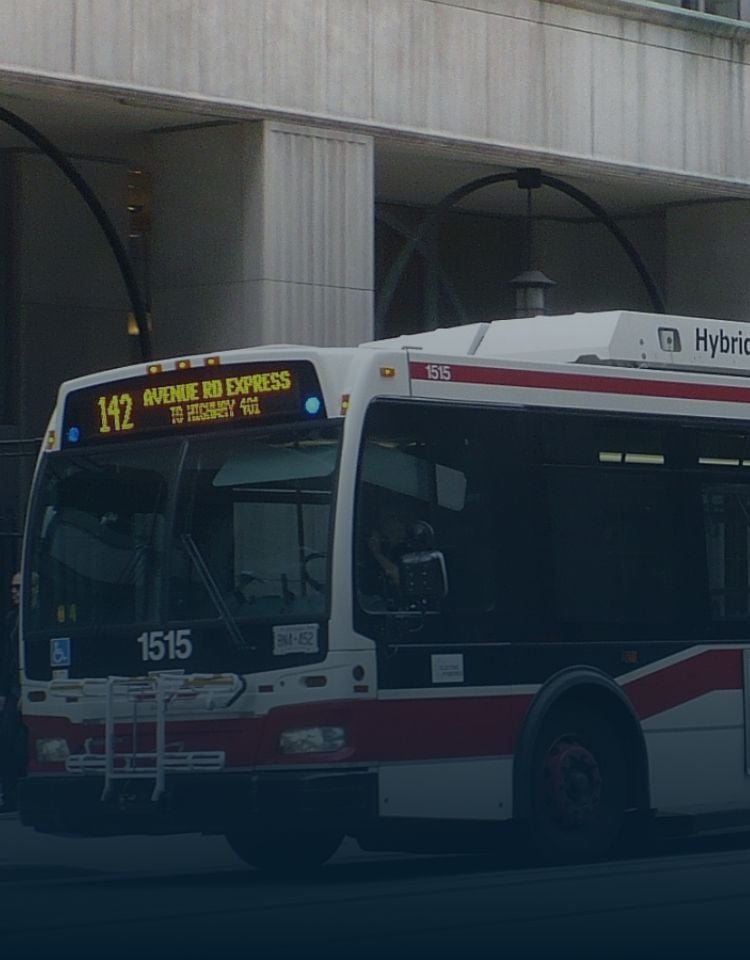Written By: Lindsay Charles and Cody Malloy, Student-at-Law
On October 24, 2022, Justice Sugunasiri released a significant decision regarding non-earner benefits. The court held that non-earner benefits (NEBs) are not related to loss of income and therefore are not to be deducted from income loss awards.
This case stems from an incident in 2012 where the Plaintiff, Ms. Kolapully, was struck by a TTC bus crossing Ellesmere Road at its intersection with Nielson Road in Scarborough. After reducing the jury’s award of $200,000 for past loss of income due to contributory negligence, Ms. Kolapully was awarded $150,000. Ms. Kolapully previously received $95,354.23 in non-earner benefits under the Statutory Accident Benefits schedule (SABs). Per section 267.8 of the Insurance Act (IA), certain benefits under SABs are deducted from pecuniary damages to avoid double recovery by the Plaintiff.
The court considered two prior Ontario Court of Appeal cases in reaching its decision: Walker v. Ritchie (2005) and Cadieux v. Clouter (2018). In Walker, the court held that non-earner benefits are not deductible from loss of income awards because the purpose of non-earner benefits is to compensate for loss of enjoyment of life. In essence, non-earner benefits are akin to non-pecuniary damages, and section 267.8(7) of the IA prohibits reducing tort awards by non-pecuniary loss because of benefits received. Furthermore, the court in Walker noted that the legislature did not explicitly make non-earner benefits deductible in section 267.8(6) of the IA. In Cadieux, the court placed non-earner benefits and income replacement benefits (IRBs) in the same income loss category (“silo”).
Justice Sugunasiri decided that the changes made to the relevant SABs sections between Walker and Cadieux did not change the legal principles from Walker. SABs section 3(7)(d), in effect when the collision in Cadieux occurred, deems certain benefits “payments for loss of income” (Canada Pension Plan disability pension benefits and insurance payments related to employment), but does not mention non-earner benefits. In the court’s view, payments are only deductible from damages awards if they are related to income.
The decision further noted that SABs section 12(4)(c) stands for the mutual exclusivity of non-earner benefits and income replacement benefits since an insurer is not required to pay non-earner benefits if the insured elects to receive income replacement benefits or caregiver benefits under section 35 of SABs. This stems from the longstanding principle that an insured must choose to receive only one of non-earner benefits, income replacement benefits or caregiver benefits.
The court dismissed the Defendant’s argument that the new requirement for “ongoing requirement of disability” under section 36 of SABs made non-earner benefits akin to “loss of earning capacity”, which would therefore make non-earner benefits deductible within the broad silo identified in Cadieux. The Ontario Court of Appeal decision of Demers v. Monty (2012) settled the notion that there is no difference between income loss and loss of earning capacity. Since non-earner benefits are not related to income, Justice Sugunasiri held that non-earner benefits cannot be broadly lumped into the same category as loss of income, and non-earner benefits are in fact not akin to loss of earning capacity.
Justice Sugunasiri also dismissed the Defendant’s argument that Walker is not good law because it relied on the Court of Appeal’s decision in Bannon v. McNeely (1998), which is no longer good law. The court noted that the Walker decision did not just rely on Bannon, it also relied on the eligibility requirements for the benefit itself. Furthermore, the Defendants argued that non-earner benefits share some commonality with income related benefits, but the court stated that this same argument was already dismissed in Walker.
Lastly, Justice Sugunasiri decided that the court was not bound by the obiter comment from Cadieux. The court reasoned that Cadieux was about the deductibility of medical and rehabilitation benefits from an award of health care expenses, not non-earner benefits, and thus the comment was too far removed from its ratio to be binding on the court. Additionally, Cadieux did not rely on any cases discussing non-earner benefits. In contrast, Walker dealt specifically with the deductibility of non-earner benefits. The court highlighted two Court of Appeal decisions that followed a similar approach as in Walker and four License Appeal Tribunal (LAT) decisions that stand for the principle that non-earner benefit eligibility is related to a loss of activities as opposed to loss of income.
It is important to note that this decision considers amendments to SABs up until 2012. Any lawyers considering Kolapully for their case should keep in mind when the applicable motor vehicle collision occurred, to determine if any changes to the SABS may influence this decision.





